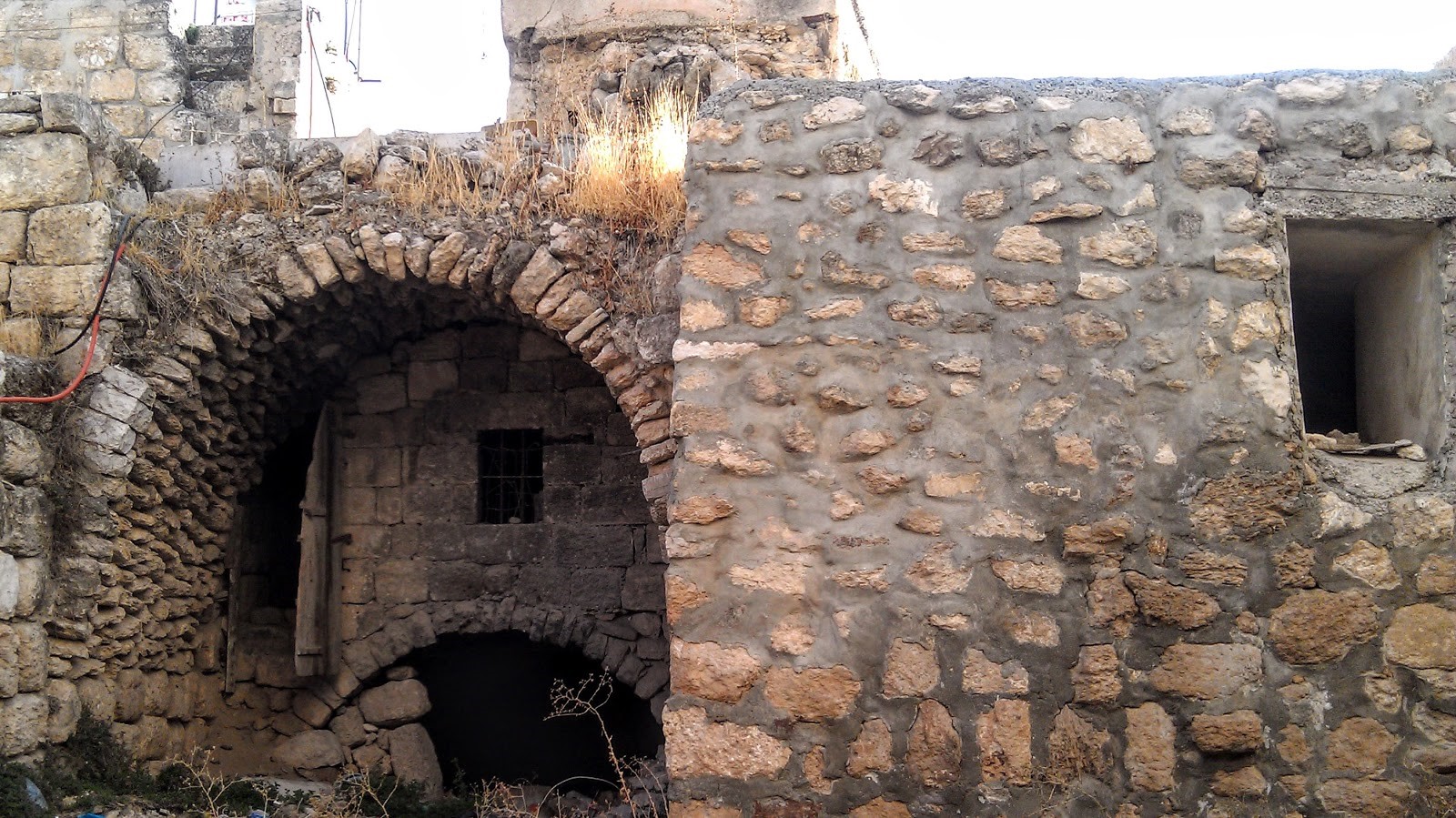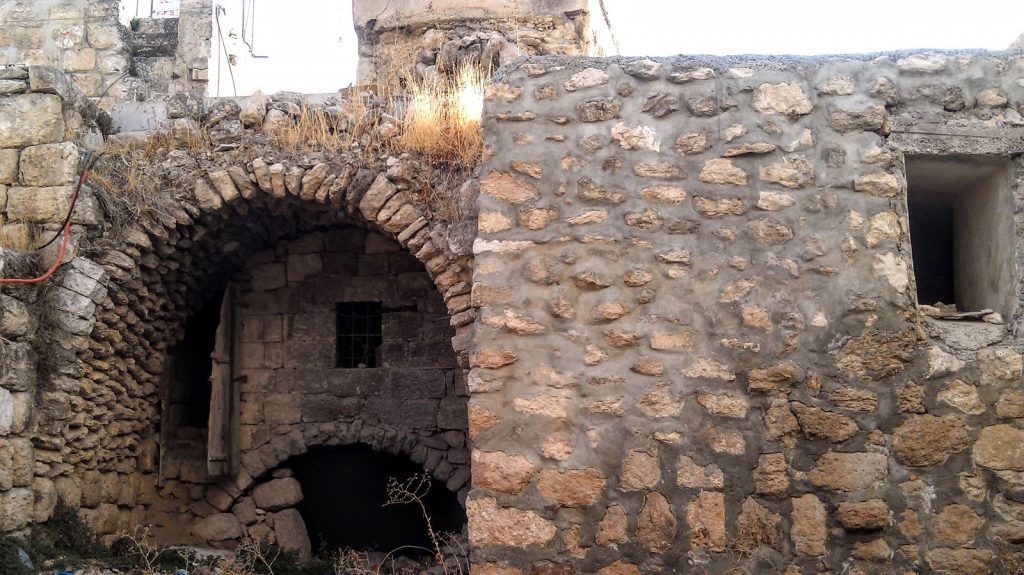
Room in the Inn
Room in the Inn
Popular translations and re-telling of the Christmas story have left an imprint in our minds as to what we envision Bethlehem of 2,000 years ago to look like. The quaint yet overloaded and crowded Bethlehem during the census of Caesar Augustus sets the scene for the holy family arriving the night of Mary’s delivery of baby Jesus in the stable. With no room for Joseph and his pregnant wife in the inn, they are turned away to a stable where the cradle for their baby would be a manger, a feeding trough for animals.
But what if this isn’t the case?
No Vacancy?
To a great number of people who have visited modern-day Bethlehem, the thought that the holy family would have been turned away from the inn would strike one as a bit odd considering the enormity of the generosity, hospitality and warmth one receives when engaging with locals here. Could it be that the culture has changed so drastically over the centuries that have passed, or is there something deeper happening in the text that has been lost over time?
Scholar Kenneth Bailey’s Jesus Through Middle East Eyes challenges the commonly accepted narrative of Mary and Joseph being turned away from the inn as one that ascribed to a popular novel released centuries after the birth of Jesus with little knowledge or understanding of the geographic layout of the land or the cultural context of the time. Bailey not only calls this into account, but he also encourages those reading the birth story of Jesus to understand the cultural and societal elements of the time as well as how the text has been translated over time.
The Inn
While there are a great many directions one could take to give a more full and succinct picture of the birth of Christ, I want to specifically focus on what was meant by “the inn,” in biblical translation and how this can help us piece together a more holistic picture of Jesus’ birth in Bethlehem.
The word used in Luke 2:7 is katalyma, meaning “place to stay”. When referencing other words that are also used in Luke’s gospel (the Good Samaritan in Luke 10:25-37) that have been translated to “inn,” he uses a different word. (See Kenneth Bailey’s thorough explanation in Jesus Through Middle East Eyes page 32.) Katalyma most specifically translates to “guest room in a private home.” The figure from Bailey’s book below gives a visual of a typical Palestinian home at that time.
So while the room for the guests was occupied, it was by no means that Joseph had planned so poorly and last minute in his family’s arrival to Bethlehem that they would have been without a place to go. Rather, it can be more easily understood that because the guest quarters were already filled in a local home, that Joseph and Mary resided with the family that had taken them in, which was most likely someone of Joseph’s family line. (Remember that he was of the royal lineage of David.) So just as most families that owned livestock in Palestine at that time, the animals were brought into the home at night for warmth. The room was connected, and the feeding troughs (the mangers) would have been in the common space. So when Jesus was born, it would have been a modest, peasant home with family nearby.
Family Honor
Culturally speaking, the intensity of honor and shame in that culture at the time was also something that needs to be dealt with. If it were true that the family of King David of whom Joseph belonged to was refused shelter, there would be tremendous shame for both parties involved. Further, if that were true, and the holy family was turned away, Mary’s relatives lived nearby (what is now believed to be just 8 miles from Bethlehem), and they could have sought shelter with Elizabeth and Zechariah. Seeing as how this was not recorded, it would seem as though the cultural shame was avoided, and as custom and culture would have it, the holy family was given shelter in a private home among people because the guest quarters were full.
Bethlehem Today
Modern-day Bethlehem, the home of Christmas itself, seems to tell this same story. As a foreigner myself, with no royal lineage, there has been no shortage of invitations, offers for help and generosity by the people here. The popular translation of the Christmas story almost strikes a note of offense here, as the people who call this place home can’t fathom a scenario where someone would be turned away, especially not a pregnant woman! But with the context and understanding of what homes looked liked and how they functioned during that time, one begins to see how small, yet important nuances in translation can be.
As someone who currently lives in the reality of modern-day Bethlehem, the beauty of the culture that is hospitable and welcoming is something to behold. Jesus was born into the meek and unadorned home alongside livestock just as so many before him had. And so, today, in this small town which often seems to go without being noticed by so many tourists that come to the land, life continues on for those living here. But those that choose to step off the path of the traditional tours will step right into the private homes of local Bethlehemites. One can be assured that tea, coffee, food, sweets and laughter are quickly to follow.
Could it be that if we take into account the fullness of biblical translation that the text actually comes alive and compels us to view the world differently? Wasn’t that what Jesus was all about anyway? He seemed to have a favorite line as he was teaching on the hillside in Galilee:
“You’ve heard it said… but I tell you.” (Mt. 5-7) And so, what we have heard, and what we have read has led us to the point of Jesus’ arrival as the Word made flesh. Now Jesus dwells among us and teaches us how to live.
It is an honor to live among the people in the town that Jesus decided to first make his debut. He revealed himself to the lowly shepherds, the ordinary folks of Bethlehem and even the noble Magi of the East. He came to all, and for all; and the story of his birth is one that captures the essence of this.
We look to the coming King that was born here in Bethlehem, and we remember that his gift to us was an eternal place of belonging. A home. Let us be wise to show kindness, hospitality and generosity to those who go unseen, are relegated to the margins or are suffering. It’s what our God made flesh not only asked us to do, but did himself. Who are we not to?
(For more detailed information about translation and the story of the birth of Jesus, check out Kenneth Bailey’s ‘Jesus Through Middle East Eyes’ book. This piece heavily relied on the work of Bailey.)
Kamila is volunteering full-time with Bethlehem Bible College in the Communications Department. In addition to her love for writing and sharing stories, her endeavors in Bethlehem and greater Palestine involve facilitating cultural immersion programs for young adults from North America to see first-hand the realities that those living here encounter. At times deemed the “eternal optimist,” Kamila holds fast to the future hope of restoration and reconciliation of all things back to God. When she’s not writing, or organizing trips, you’ll catch her training and competing with the Ultimate Palestine frisbee team.



